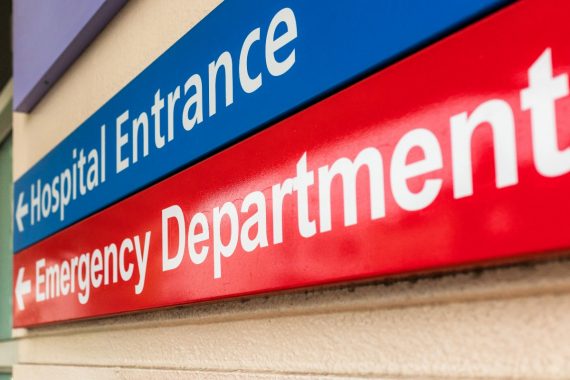Achieving NHS England’s urgent care recovery plan will be a ‘significant challenge’ based on current trends, according to the public spending watchdog.
A report by the National Audit Office (NAO), published today, gave an overview of the current urgent and unplanned care offering and whether these services are meeting the standards ‘the NHS has told patients they have a right to expect’.
Its key finding was that while Government spending continues to increase, patient access to urgent and emergency services, which included general practice, has ‘worsened’ and ‘productivity has fallen’.
While the report found that the number of GP appointments had increased considerably since the pandemic, it showed through GP Patient Survey data that public satisfaction with appointment times ‘reached its lowest levels in 2022’.
According to this data, just over half of patients surveyed in 2022 (55.2%) were satisfied with their appointment time compared with nearly two-thirds (65.9%) in 2018.
In January the Government announced its urgent and emergency care recovery plan to reduce waiting times and improve services by March 2024, with more than £2.5bn funding attached.
However, the report concluded: ‘The long-term trends in workforce, activity, spending and performance indicate this will be a significant challenge.’
It said: ‘More people than ever before are receiving unplanned and urgent NHS care every day. To support these services, the NHS is spending increasing amounts of public money and employing record numbers of people.
‘Nevertheless, patients’ satisfaction and access to services have been worsening, suggesting there is no single, straightforward solution to improving what is a complex and interdependent system.’
The NAO cited figures from the Centre for Health Economics which showed that across 2019/20 and 2020/21 NHS productivity decreased by 23% which is ‘a reduction not echoed by a similar decline in the wider UK economy’.
Public Accounts Committee chair Meg Hillier MP said that patient access to urgent care, both in hospitals and in the community, ‘is deteriorating across and suite of measure’ despite increased funding and staff.
She said: ‘It’s clear more of the same won’t work. The Department of Health and Social Care and NHS England need to wake up to the severity of these long-term trends if they are going to give patients the service they deserve.’
The report also referenced NHSE’s primary care recovery plan which it said aimed to ‘improve patients’ contact with GP practices and improve patients’ information about how requests to their GPs would be managed’.
GP data highlighted in the auditors’ report
- As of March 2023, there were 6,442 GP practices in England
- General practice received £12.6bn national funding in 2020/21
- Appointment data:
- There were 336 million appointments in general practices in 2022/23 compared with 285.3 million in 2018/19
- Monthly general practice appointments recently reached record levels with 32 million provided in October 2022 compared with 27.1 million in October 2018
- Waiting times for appointments:
- In the 12 months before the pandemic, between April 2019 and March 2020, on average 41.7% of GP patients got an appointment on the same day they booked
- Following the onset of the COVID-19 pandemic, the proportion seen the same day increased to 63.3% in April 2020, but has now returned closer to pre-pandemic levels, with 43.2% seen in March 2023.
- The proportion of patients waiting more than 28 days has decreased following the pandemic, from 5.1% in 2019-20 to 4.2% in 2022-23
- Mode of appointment:
- In the 12 months before the outbreak of COVID-19, 80.0% of appointments were face-to-face and 14.3% of appointments were delivered virtually or via telephone (the rest were home visits or unknown).
- For the 12 months from March 2020, the proportion of face-to-face appointments decreased to 54.1% and the proportion of virtual and telephone appointments rose to 41.2%.
- As of March 2023, the proportion of telephone and virtual appointments had dropped to 27.4%, and GP practices are now seeing increasing proportions of patients in person.
- Workforce:
- The number of GPs, measured in full-time equivalents, grew from 34,464 in March 2017 to 36,428 in March 2023, an increase of 5.7%.
- Numbers of qualified permanent GPs have fallen throughout this period, decreasing by 5.3% from 28,143 to 26,665.
- The number of patients registered with GPs increased by 6.0% between November 2017 (the earliest available data) and March 2023.
Source: National Audit Office
Pulse October survey
Take our July 2025 survey to potentially win £1.000 worth of tokens















they have destroyed hospital firms, removed secretaries and admin staff attached to the firms, making them generic personnel working shifts from another building. now patients queu in front of GP surgeries in order to get reports of their hospital tests or asking us to chase results, appointments and everything else that hospital machinery is failing to catch up with. not content with that, the imbeciles want to “bring GPs in line with wider NHS”.
obviously, if you continue to fragment care, not content on destroying structures of hospital firms, still planning to do the same with GP Partnerships, you will see continuing increase in costs and staff numbers with reduced productivity and patients satisfaction
Weird – I would have thought constant industrial disputes with staff, lambasting them in the media, year on year real terms pay cuts, lots of unfilled posts and asking staff to cover them without extra time or pay would generally result in a supportive, highly productive, energetic and innovative workforce.
It’s fairly simple, treat staff poorly and the service will suffer.
Well said, Dr “Bloke” and “Bang the drum” for Dr Bong; use your real names: why are you using Nom de Plume; especially when you really have something very useful to say?